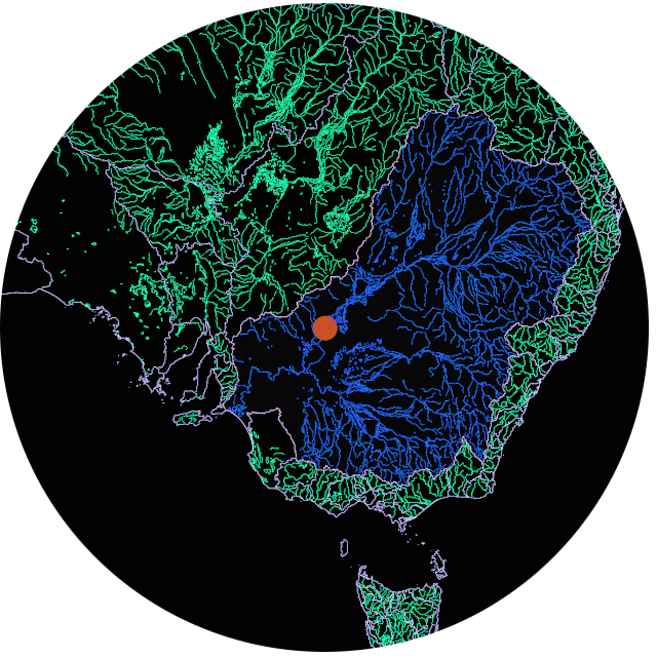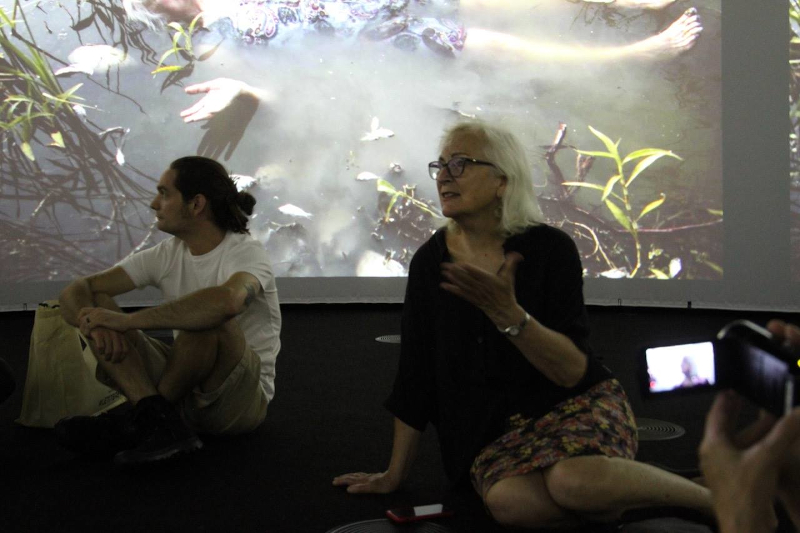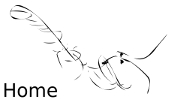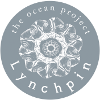Living Data:
Map
2021 Conversations
Disclaimers, Copyrights and Citations
Conversations/Index 2010 2011 2012 2013 2014 2015 2016 2017 2018 2019 2020 2021 2022 2023 2024
"...Stop flood plain harvesting. There's no future for anyone if we don't stop it
and learn to manage this country better." Barkindji Elder Badger Bates
 Menindee 2nd April 2021
Menindee 2nd April 2021
Badger Bates, Barkindji Elder from Menindee,
sends an urgent call from the Barka (Darling River).

Artist Gabrielle Hirst posts a message on Facebook, on April 13 at 12:16 PM:
Last weekend, on April 2nd, I was privileged to return to Kinchega National Park with Barkindji Elder, artist and activist Uncle Badger Bates. The Barka-Darling has more water in it now then it did in April 2019, topped up with flushes of what Uncle Badger called 'Shut-Up water' - just enough flow to keep communities in Wilcannia and Menindee quiet but not enough to resolve any of the deep scarcity issues damaging the river and lakes. Recently there have been greater flows through Wilcannia from northern flooding, but the problems facing the river remain severe and structural. Just near Menindee, we came across these vast, fluorescent blue-green algea blooms, blooms which suffocate the river and lead to devastating fish kills like those which caught media attention in 2019. This is very much an ecosystem in crisis, requiring significant shifts in management, which should be led by First Nations voices.
His message, was recorded on banks of the Barka, near Menindee, with permissions granted to share - please feel free to share onwards:
Badger Bates:
"Hello Everybody, it's the 2nd of April today, 2021. So they've sent plenty of 'shut-up water' down, with this flood we're having up north. Just there is the problem we have at Menindee, we're at Kinchega National Parks, where I'm pointing is towards Menindee, there's all that algae through there, and where I am pointing down there to the left, about a km down, there is the same thing on a bend like this, there's algae everywhere. They're letting a little bit of water go, they're trying to flush it out, but this algae is going to be flushed right through the system, just sending the problem down the Pooncarie and Wentworth and all over the place. And if we don't get a lot of water, we'll have another fish kill soon. We've just about got nothing. We hope that they stop the floodplain harvesting, because if water don't flow from out on the floodplains into the Barka, we're going to get this for the rest of our life, and for the kid's futures we'll have the same thing. So stop it now, and stop floodplain harvesting. Minister Pavey: you told us you were going to stop it: stop it now. Because, there's no future if we don't stop it, and try and manage the Country a bit better. Send plenty of the Shut-up water, not just a little bit.You've got plenty of it up there, let some of it come down this way. Give us our share, where's this water sharing plan you're talking about? It doesn't even exist, it's not worth the piece of paper it's written on. Come on, tell the truth, and give us some more water."
Related story
Bonita Ely (right) with freshwater ecologist Rene Dalmas (left) in the Data Arena at University of Technology Sydney, with the image of Bonita immersed in the fish kills in Menindee in 2019. This performance art work was created by Bonita in collaboration with artist Melissa Williams-Brown, and displayed as part of Living Data conversations using languages of art, science and cultural practices.













